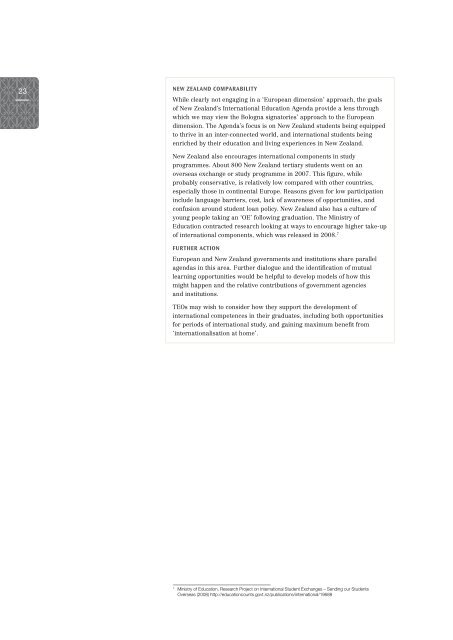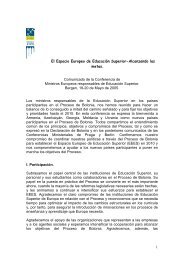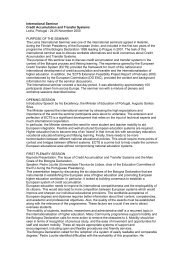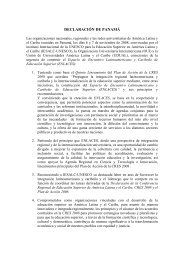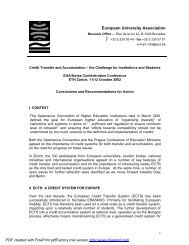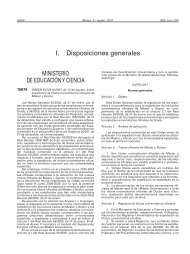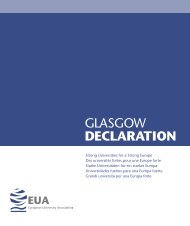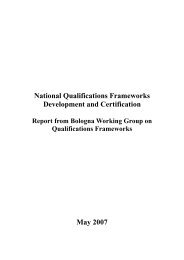New Zealand and the Bologna Process
New Zealand and the Bologna Process
New Zealand and the Bologna Process
You also want an ePaper? Increase the reach of your titles
YUMPU automatically turns print PDFs into web optimized ePapers that Google loves.
23 <strong>New</strong> <strong>Zeal<strong>and</strong></strong> ComparabilityWhile clearly not engaging in a ‘European dimension’ approach, <strong>the</strong> goalsof <strong>New</strong> <strong>Zeal<strong>and</strong></strong>’s International Education Agenda provide a lens throughwhich we may view <strong>the</strong> <strong>Bologna</strong> signatories’ approach to <strong>the</strong> Europe<strong>and</strong>imension. The Agenda’s focus is on <strong>New</strong> <strong>Zeal<strong>and</strong></strong> students being equippedto thrive in an inter-connected world, <strong>and</strong> international students beingenriched by <strong>the</strong>ir education <strong>and</strong> living experiences in <strong>New</strong> <strong>Zeal<strong>and</strong></strong>.<strong>New</strong> <strong>Zeal<strong>and</strong></strong> also encourages international components in studyprogrammes. About 800 <strong>New</strong> <strong>Zeal<strong>and</strong></strong> tertiary students went on anoverseas exchange or study programme in 2007. This figure, whileprobably conservative, is relatively low compared with o<strong>the</strong>r countries,especially those in continental Europe. Reasons given for low participationinclude language barriers, cost, lack of awareness of opportunities, <strong>and</strong>confusion around student loan policy. <strong>New</strong> <strong>Zeal<strong>and</strong></strong> also has a culture ofyoung people taking an ‘OE’ following graduation. The Ministry ofEducation contracted research looking at ways to encourage higher take-upof international components, which was released in 2008. 7Fur<strong>the</strong>r ActionEuropean <strong>and</strong> <strong>New</strong> <strong>Zeal<strong>and</strong></strong> governments <strong>and</strong> institutions share parallelagendas in this area. Fur<strong>the</strong>r dialogue <strong>and</strong> <strong>the</strong> identification of mutuallearning opportunities would be helpful to develop models of how thismight happen <strong>and</strong> <strong>the</strong> relative contributions of government agencies<strong>and</strong> institutions.TEOs may wish to consider how <strong>the</strong>y support <strong>the</strong> development ofinternational competences in <strong>the</strong>ir graduates, including both opportunitiesfor periods of international study, <strong>and</strong> gaining maximum benefit from‘internationalisation at home’.7Ministry of Education, Research Project on International Student Exchanges – Sending our StudentsOverseas (2008) http://educationcounts.govt.nz/publications/international/19688


